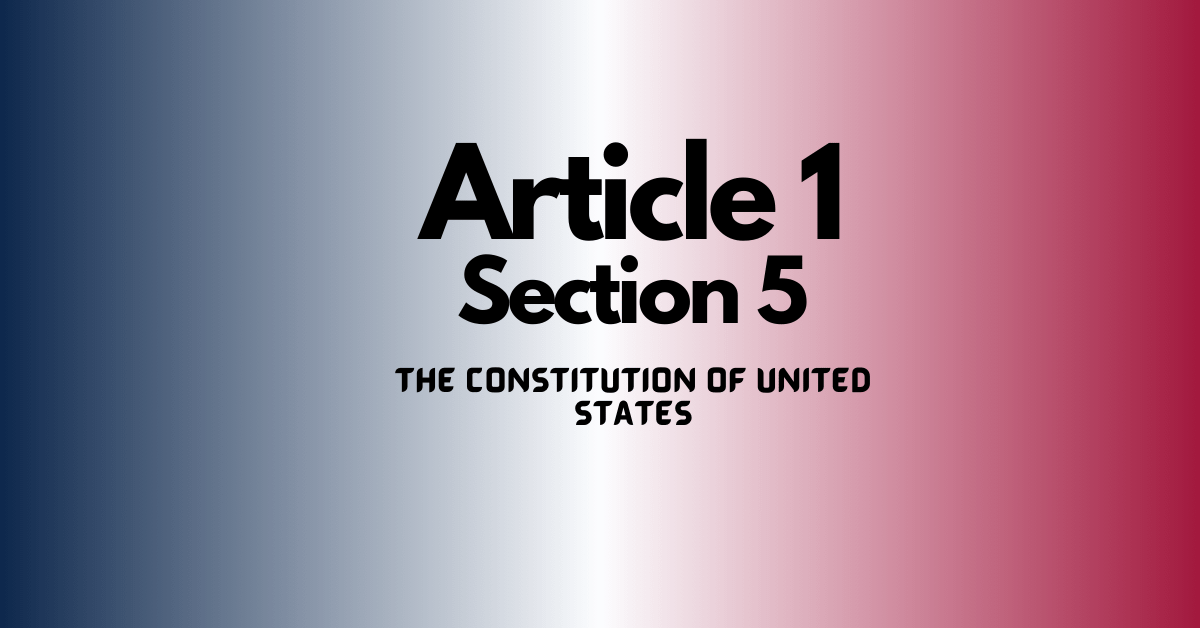Article 1 , Section 5 (Original text):
Each House shall be the Judge of the Elections, Returns and Qualifications of its own Members, and a Majority of each shall constitute a Quorum to do Business; but a smaller Number may adjourn from day to day, and may be authorized to compel the Attendance of absent Members, in such Manner, and under such Penalties as each House may provide.
Each House may determine the Rules of its Proceedings, punish its Members for disorderly Behaviour, and, with the Concurrence of two thirds, expel a Member
Each House shall keep a Journal of its Proceedings, and from time to time publish the same, excepting such Parts as may in their Judgment require Secrecy; and the Yeas and Nays of the Members of either House on any question shall, at the Desire of one fifth of those Present, be entered on the Journal.
Neither House, during the Session of Congress, shall, without the Consent of the other, adjourn for more than three days, nor to any other Place than that in which the two Houses shall be sitting.
Explanation:
This section of the Constitution delineates the duties, powers, and procedural rules for each House of Congress, as well as requirements for recordkeeping and limitations on adjournment.
Duties and Powers of Each House
- Each House of Congress is responsible for judging the elections, returns, and qualifications of its own members.
- A majority of each House constitutes a quorum to conduct business. However, a smaller number can adjourn from day to day and may be authorized to compel the attendance of absent members, with penalties as determined by each House.
Rules and Discipline
- Each House has the authority to determine its own rules of proceedings.
- It can punish its members for disorderly behavior.
- With the concurrence of two-thirds of its members, a House can expel a member.
Recordkeeping and Transparency
- Each House is required to keep a journal of its proceedings.
- This journal must be periodically published, except for parts deemed necessary for secrecy by the House.
- The yeas and nays of the members on any question shall be entered into the journal if requested by one-fifth of those present.
Session and Adjournment
- Neither House of Congress can adjourn for more than three days during a session without the consent of the other House.
- They also cannot adjourn to any place other than where both Houses are sitting.
FEEL FREE TO ASK DOUBTS IN THE COMMENTS.
